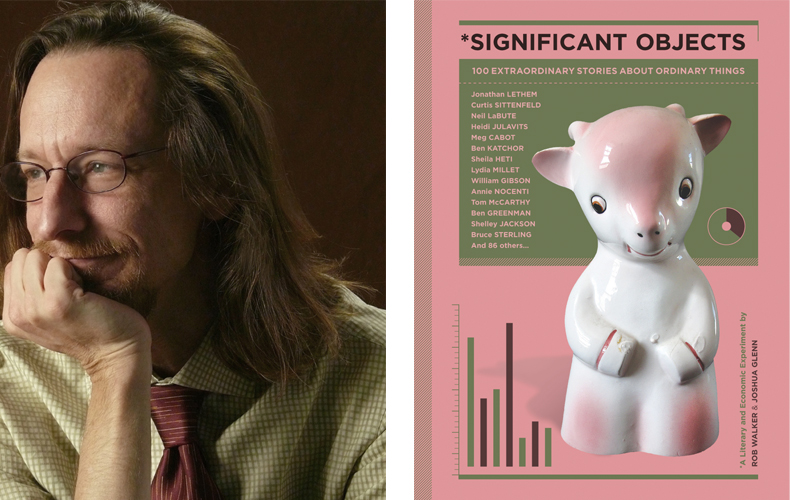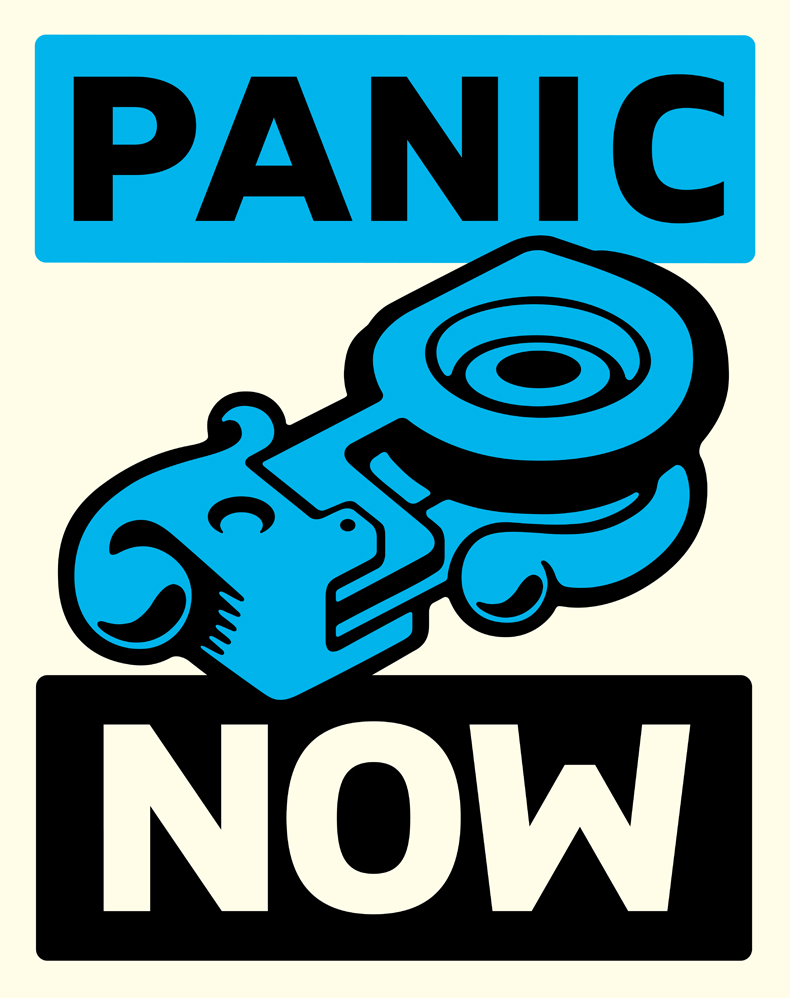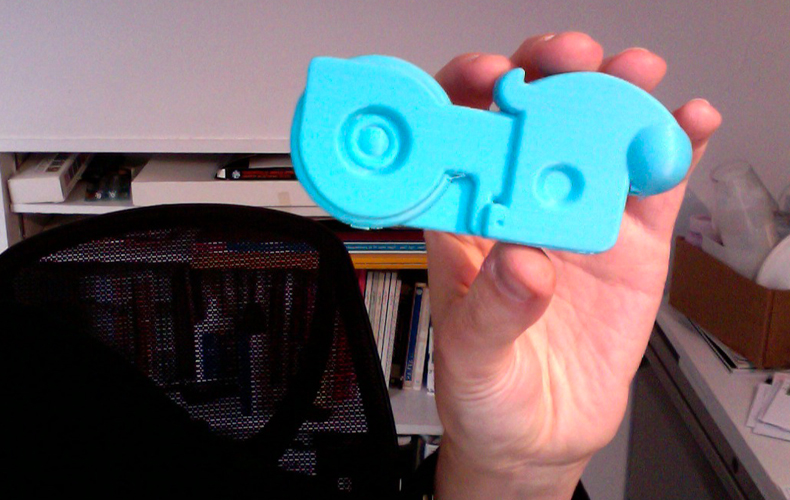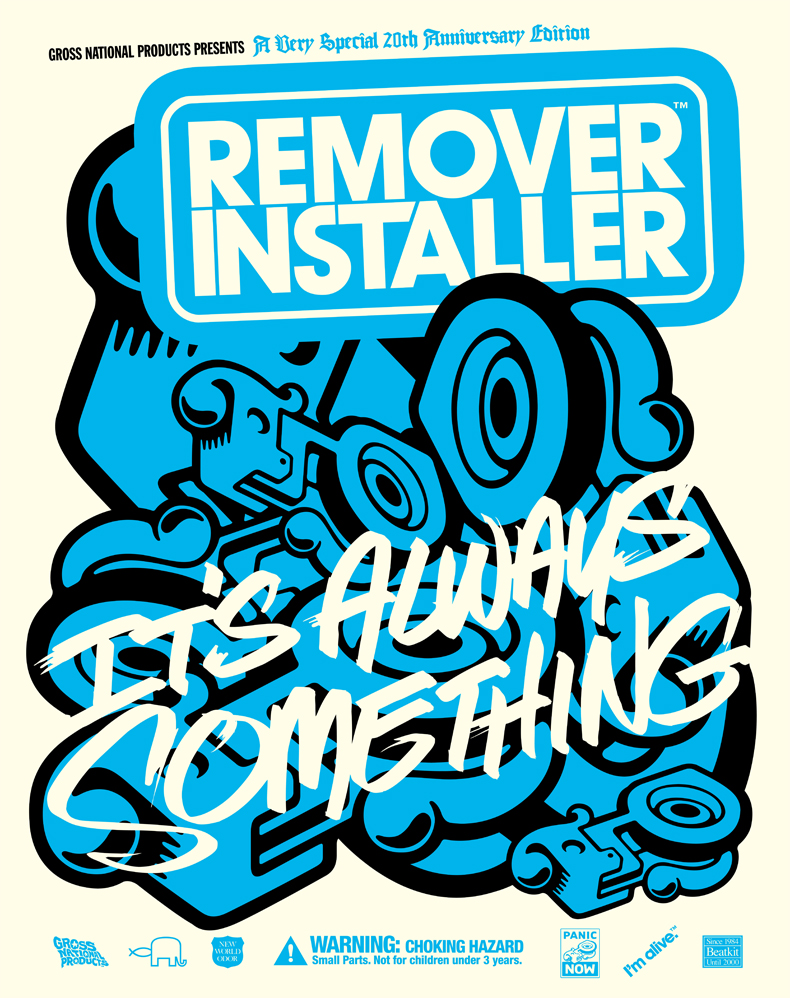Nov 12, 2012 8 Questions With: Rob Walker
Rob Walker is a talented writer, with an incredibly impressive output, and across a wide array of media, no less. A longtime contributor to The New York Times, 55 of his “Consumed” columns are currently available as an e-book from Amazon. He is also a regular columnist for Design Observer, and he also runs his own popular MKTG Tumblr site. But wait, there’s more! He devised and carried out a fascinating “literary and anthropological experiment” with Joshua Glenn, selling thrift store items on eBay, each with purpose-written short stories in place of item descriptions, raising $8K in the process. 100 of the best stories are out now in the Significant Objects book co-edited by Walker and Glenn. Turning his attention to different media, Rob is currently organizing the As Real As It Gets art exhibit, which will be unveiled at apexart in New York City on November 15th. And in spite of the seemingly impossible odds against it, Rob kindly managed to find some time to sit down and answer our questions about his work.
What are you currently working on?
I’m in the final stages of organizing a show at apexart in New York, called “As Real As It Gets.” It’s all about fictional products and imaginary brands, and it’s going to be pretty crazy — images, objects, sound, 3D-printing, and promotional tchotchkes, from a lineup of people and entities whose work I really love. It should be very fun. The opening is November 15. You should come!
Other than that, I’m doing a number of journalistic pieces, a couple of which I’m really excited about and having a great time with, but they’re still in progress so I’m reluctant to get too detailed.
How would you describe your job?
I’m basically a journalist, with a variety of side projects.
What does your average work day look like?
I get up pretty early, like 6 or 7, and usually spend the first hour or so of the day catching up on the news — NYT, WSJ, and local paper (all on the iPad), and then the many blogs and online publications I try to keep up with, and then usually Tumblr.
The rest of the day depends on what I’m working on. Sometimes it’s a lot of time interviewing people on the phone, sometimes it’s isolation as I write, sometimes it’s email galore if I’m trying to wrangle people for a project. I work at home, so I also occasionally break the day up by taking care of routine errands — the grocery store or whatever. Toward evening time I revisit the online infosphere and maybe update things like Unconsumption, a group Tumblr I’m involved in.
I try to power down before 6, because I’m pretty fried by then. Then it’s cocktail hour with my wife, Ellen Susan, and time to walk our dog Russell.
Where do you find inspiration?
In the overlooked, the mundane, the unvalued, the ruined. Ruminating about a broken coffee cup, and why its value to me had been all about the story attached to it, helped lead to Significant Objects, an online literary project that recently became a book. Contemplating empty buildings with banal real-estate signs helped inspire The Hypothetical Development Organization, a public art project that ended up being included in the U.S. presentation at the Venice Architecture Biennale this year. And “As Real As It Gets” gathers a lot of work that will I think make visitors look in a new way at certain commercial-culture trappings we’ve all gotten so used to that we hardly notice them anymore.
I would also say that, especially in the last couple of years, I’ve become more and more excited about team-up projects. For starters it was so much fun to work with Joshua Glenn, co-founder of Significant Objects, and Ellen Susan and G.K. Darby, on HDO — all people who have skills that I completely lack. And then with both of those projects as well as “As Real As It Gets,” everything really depends on rounding up the right group of contributors: writers for S.O., artists and architects for H.D.O., and now artists and designers and others for the new show.
The lesson for me is that coming up with the right kind of idea can be an opportunity to convince all your creative heroes to join in. And that’s pretty great. I am ruminating on new schemes to rope in other creators I admire, even as I answer your questions. I’m addicted.
As a kid, what did you want to be when you grow up?
I remember reading Stephen King when I was pretty young and concluding that making up stories for a living would be ideal. But I don’t have much talent for fiction, turns out.
Later I know I thought it would be cool to be a DJ — a radio DJ — because they just seemed to hang around listening to music all day. Eventually I figured out it was more complicated than that. And also that radio DJs often had little say in the music they were playing.
Do you have any advice for aspiring writers?
Don’t shy away from topics that sound intimidating or dull at first. In the early years of your career, in particular, take any opportunity and try to learn about everything, especially the stuff that seems really alien or boring. You never know what will come in handy down the line — and what will turn out to be much more interesting than you had guessed.
What are you reading at the moment?
Thomas Frank’s Pity The Billionaire, and Michael Sandel’s What Money Can’t Buy. Those are both sort of work-related. This morning I started reading the “Medicine” issue of the lit quarterly Granta, which I’m a big fan of (even though I’m always an issue behind) with a great short story in that one by Chris Adrian — a contributor to Significant Objects, as it happens.
What’s your favorite post-work destination?
Probably our kitchen! In the last few years I’ve slowly grown more and more interested in cooking. I’m still not good at it, but I enjoy the process quite a bit.






